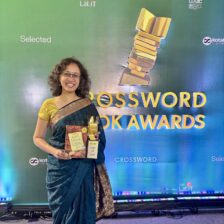Yes, I was a bit sceptical about doing a workshop for children to mark International Women’s Day. What would I do? How much would I say? How would I even begin to talk about the inequality we see around us every day without even noticing it?
Talking about equal pay means nothing to these children. Pay is something far, far in the future. Unequal opportunities and conditioning do not ring true to them. Believe me, I’ve tried. Most are too idealistic to think that these could be true – and perhaps that’s a good thing.
So, I began with home.
How many of you have mothers who work outside home?
Six out of seven.
Who cooks at home?
Two children said both their parents do. The others, you know the answer.
Laundry?
Three said both parents. Then, as an afterthought, another agreed.
Who buys groceries?
Both parents.
Who does ‘extra’ cleaning – windows, dusting, cobwebs …?
Mother.
Who notices when you’re running out of sugar or salt?
Mother.
Who manages the house?
Mm … Mainly mother.
Despite this, many children did not feel it was a question of equality. That’s just the way things are, right? The father is the ‘main’ breadwinner, and well, what’s wrong with that?
I don’t know how much of a change I made, if I made a change at all, but in places, I think there was a ripple. I made them come forward and write about women who inspire them in any way.

We read about women – fantastic women who changed the world, but many of the children weren’t convinced that these women are relevant now. Sure, they were important in history, but the work is all done now. I mean, we have the right to vote, right? And we can all work, right?
I think I got through to a few when we spoke about privilege. But poverty and environment are things they can see and work on; the other things – we’re just making them up. They want to create change. They want to change the world.
And optimist that I am, I know that that is a good beginning.



Leave a Reply